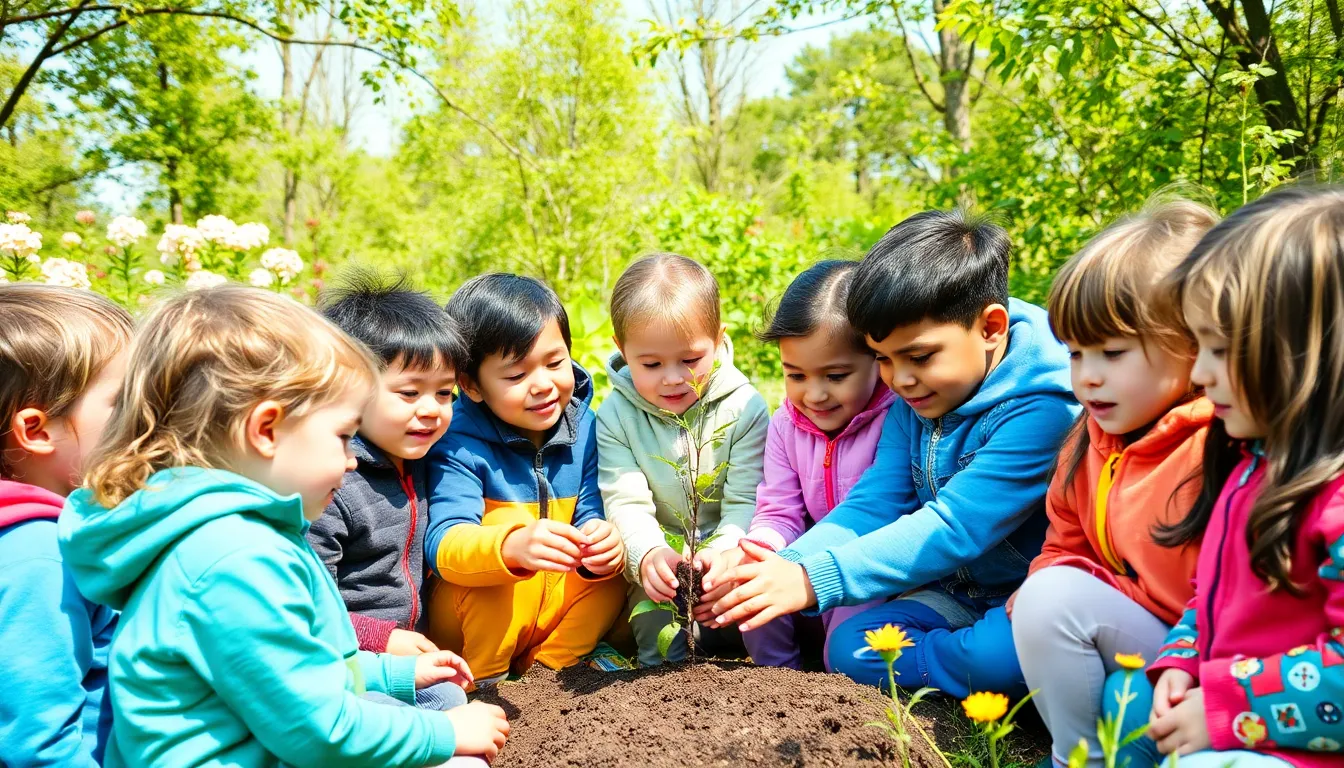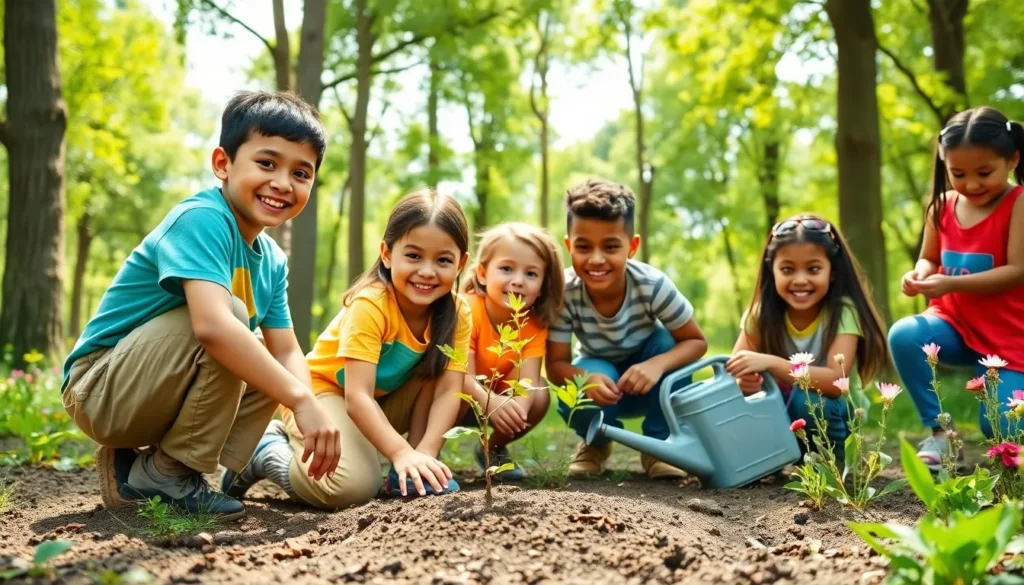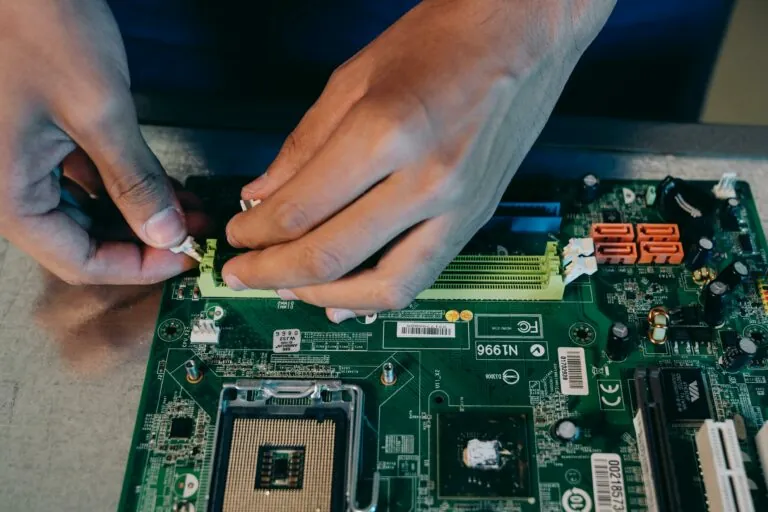Imagine a world where kids not only thrive but also become little environmental heroes. Conservation child development merges growth and sustainability, ensuring children flourish emotionally, socially, and intellectually. So, how does understanding conservation alter their developmental journey? Let’s jump into the captivating connection between nature and nurturing our future generations. Grab your favorite snack, because this exploration is about to get interesting.
Table of Contents
ToggleUnderstanding Conservation in Child Development

Conservation in child development revolves around nurturing not just the child but also their relationship with nature. But what exactly is conservation psychology? It’s the study of how our environment affects behavior and mental processes. It suggests that a healthy relationship with nature can significantly influence a child’s growth.
Principles of Conservation Psychology
This principle revolves around the idea that how children interact with their surroundings shapes their psychological development. When children are engaged with nature, they learn empathy, not just for humans but for all living beings. They start to understand the interconnectedness of life. Conversations about why trees are vital or why pollinators matter can spark curiosity, leading to a deeper appreciation for the natural world. Through outdoor experiences, children develop essential skills such as problem-solving and critical thinking. Engaging with nature can also reduce stress and foster resilience, making it pivotal in cultivating positive mental health.
By introducing conservation principles early, children learn to see the world not as separate from them, but as a part of them. That bond becomes crucial as they grow.
The Role of Nature in Development
Nature plays a multifaceted role in fostering developmental growth in children. A stroll through a park isn’t just a casual enjoyment: it’s a stepping stone toward holistic development.
Benefits of Outdoor Play and Interaction
Outdoor play invites children to engage physically, socially, and creatively. When kids play outdoors, they not only burn off energy but also develop essential motor skills and coordination. Climbing trees or jumping in puddles enhances their physical health, while unsupervised play creates opportunities for self-discovery and independent thinking. Recent studies show that children who spend more time in nature exhibit enhanced curiosity and are better at collaborative play, an essential part of social learning.
Influence of Nature on Cognitive Skills
Yet, the benefits extend beyond just physical growth. Nature enriches cognitive development too. Exposure to natural environments has been linked to improved concentration and higher test scores. For instance, tasks like identifying flowers or observing animal behavior can lead to significant improvements in attention span, helpful tools for a future filled with endless distractions. Also, these experiences spark creativity and improve problem-solving abilities, as children learn to navigate and make sense of their surroundings.
Social and Emotional Growth through Conservation Activities
Conservation activities provide children with unique opportunities to develop a sense of belonging and purpose. Being part of something bigger than themselves fosters emotional intelligence and social skills.
Family Involvement in Conservation Efforts
When families unite for a common cause like conservation, the impact is profound. Engaging in community clean-ups or tree-planting events cultivates a spirit of teamwork and responsibility among children. They observe their parents modeling altruism and commitment to the environment, which reinforces positive behavior. Not only does this increase family bonding, but it also instills values of stewardship and compassion. Children gain a sense of accomplishment, feeling directly involved in making their corner of the world better, a critical step in forming their identity.
Creating a Supportive Environment for Children
To foster conservation child development, a supportive environment plays a crucial role. This is where educational programs and curricula can make a significant difference.
Educational Programs Promoting Conservation
Schools can harness the power of conservation by implementing hands-on programs. Educational initiatives that take children outside, whether through gardening clubs or nature walks, can enhance their understanding of ecology in an engaging manner. Workshops that focus on local flora and fauna make subjects like biology and environmental science come alive.
Integrating Conservation into Curricula
Integrating conservation topics into everyday learning helps children connect classroom knowledge with real-world applications. Projects that involve examining ecosystems or creating sustainable habitats can solidify their understanding of environmental impact. This approach not only makes learning more relevant but also prepares children to be proactive in addressing environmental challenges as they grow.



